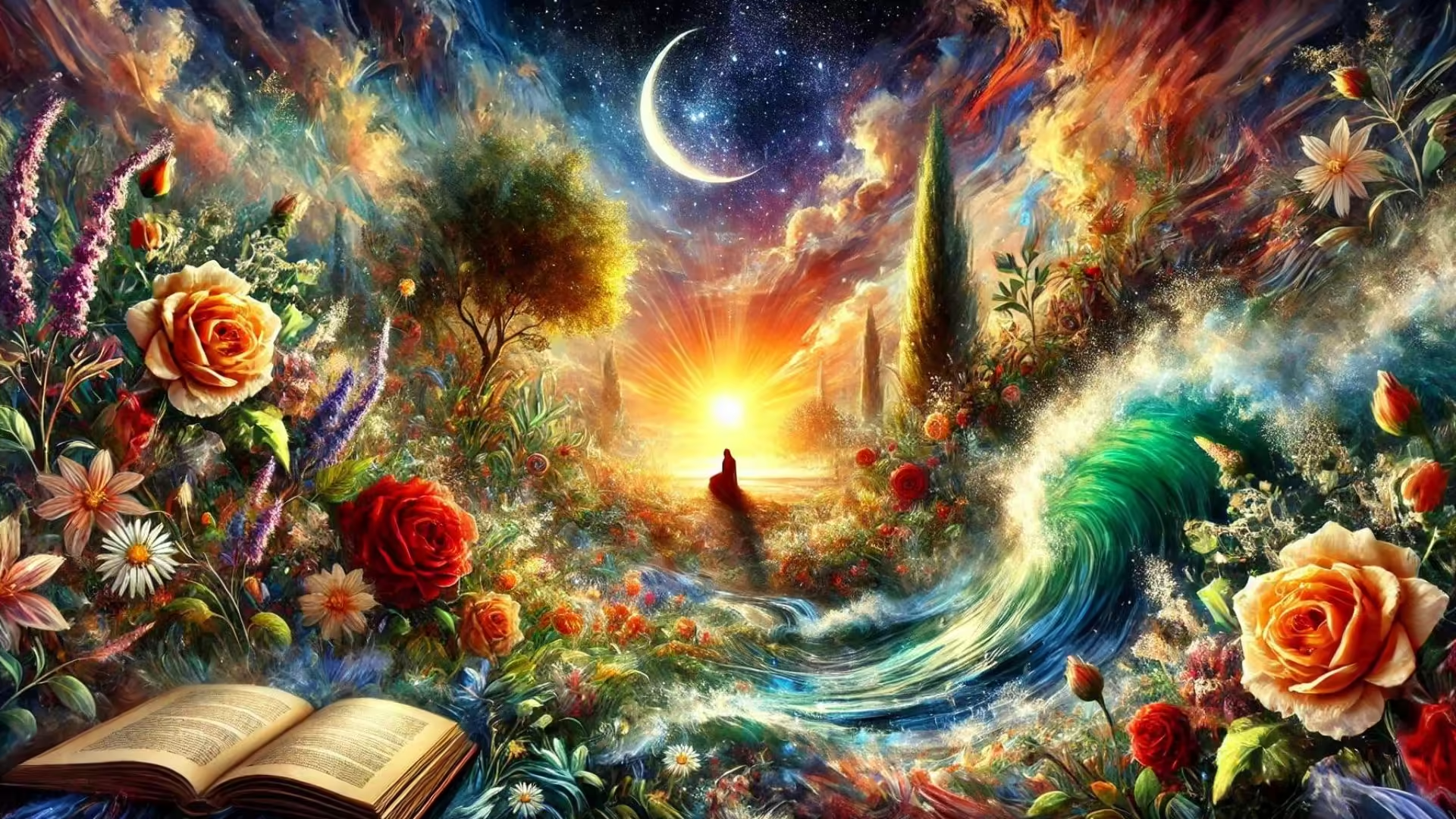Exploring the Depth and Beauty of Pablo Neruda’s Poetry
Pablo Neruda, one of the most celebrated poets of the 20th century, crafted a body of work that continues to captivate readers with its profound beauty and emotional depth. His poetry transcends mere words, inviting readers into a world of love, nature, and political passion. With a unique ability to capture the essence of the human experience, Neruda’s verses resonate with readers across cultures and generations. This article delves into the themes, style, and impact of Neruda’s poetry, offering insights into why his work remains timeless and thought-provoking.
The Life and Influence of Pablo Neruda
Born Ricardo Eliécer Neftalí Reyes Basoalto in 1904 in Parral, Chile, Neruda adopted his pen name early in his career to honor the Czech poet Jan Neruda. His literary journey began at a young age, and by his late teens, he had already published several works that showcased his lyrical prowess.
Neruda’s life was marked by a deep commitment to political and social causes. He served as a diplomat and senator in Chile and was an ardent supporter of socialism, which profoundly influenced his poetry. His experiences during the Spanish Civil War and his close friendships with figures like Federico García Lorca further shaped his political consciousness and poetic voice.
Themes in Neruda’s Poetry
Pablo Neruda’s poetry is characterized by its rich imagery, emotional intensity, and exploration of universal themes. Here are some of the key themes that define his work:
- Love and Passion
- Neruda is perhaps best known for his love poems, which are celebrated for their sensuality and depth of feeling. In collections like “Twenty Love Poems and a Song of Despair,” he captures the ecstasy and anguish of love with unparalleled eloquence. His love poetry explores the complexities of human relationships, often intertwining erotic desire with profound emotional connections.
- Nature and the Universe
- Nature plays a central role in Neruda’s poetry, serving as both a source of inspiration and a metaphor for the human condition. He often writes about the beauty and power of the natural world, drawing connections between nature and the inner workings of the human heart. In “Elemental Odes,” Neruda celebrates everyday objects and phenomena, infusing them with a sense of wonder and reverence.
- Political and Social Justice
- Neruda’s commitment to political causes is evident in his poetry, where he addresses themes of injustice, oppression, and revolution. Works like “Canto General” reflect his deep empathy for the struggles of the oppressed and his hope for a more equitable world. Through his poetry, Neruda gives voice to the voiceless, using his art as a tool for social change.
The Style of Neruda’s Poetry
Neruda’s poetic style is characterized by its vivid imagery, emotional intensity, and lyrical beauty. He often employs metaphors and similes to convey complex emotions and ideas, creating a sensory experience for the reader. His use of language is both accessible and profound, allowing readers to connect with his work on a deeply personal level.
Neruda’s ability to blend the personal with the political, the intimate with the universal, is a hallmark of his poetry. His verses are imbued with a sense of urgency and immediacy, inviting readers to engage with the world around them and reflect on their place within it.
The Impact of Neruda’s Poetry
Pablo Neruda’s poetry has left an indelible mark on the literary world, influencing generations of poets and readers. His work has been translated into numerous languages, making his voice accessible to a global audience. Neruda’s ability to capture the essence of the human experience and his unwavering commitment to social justice continue to resonate with readers today.
His influence extends beyond literature; Neruda’s poetry has inspired music, art, and political movements. His work serves as a reminder of the power of poetry to evoke emotion, provoke thought, and inspire change.
The poetry of Pablo Neruda is a testament to the enduring power of words to move hearts and minds. Through his exploration of love, nature, and political passion, Neruda invites readers to engage with the world in all its complexity and beauty. His work challenges us to reflect on our own experiences, to find connection in the shared human journey, and to strive for a more just and compassionate world.
As we continue to explore the depths of Neruda’s poetry, we are reminded of the timeless nature of his art and its ability to inspire and transform us. His legacy lives on in the hearts of those who find solace, joy, and inspiration in his words, proving that poetry, at its best, can be both a mirror and a beacon for the human soul.
Expand Your Vocabulary
1. Lyrical
- Meaning: Expressing the writer’s emotions in an imaginative and beautiful way.
- Use in Context: Neruda’s poetry is known for its lyrical beauty, capturing emotions with vivid imagery.
- Everyday Use: “Her lyrical writing style makes even simple stories enchanting,” referring to a poetic and emotional way of expressing thoughts.
2. Universal
- Meaning: Relating to or affecting all people or things worldwide; applicable to all.
- Use in Context: Neruda’s poetry explores universal themes that resonate with readers globally.
- Everyday Use: “Love and kindness are universal values,” meaning they are relevant and appreciated by everyone.
3. Profound
- Meaning: Having deep insight or understanding; very great or intense.
- Use in Context: The profound depth of Neruda’s poetry invites readers to reflect on complex emotions and ideas.
- Everyday Use: “His speech had a profound impact on the audience,” indicating it was deeply moving and thought-provoking.
4. Metaphor
- Meaning: A figure of speech that describes an object or action in a way that isn’t literally true but helps explain an idea or make a comparison.
- Use in Context: Neruda often uses metaphors to convey complex emotions and connect abstract ideas.
- Everyday Use: “The world is a stage” is a metaphor comparing the world to a theater stage.
5. Imagery
- Meaning: Visually descriptive or figurative language, especially in a literary work.
- Use in Context: Neruda’s poetry is rich in imagery, painting vivid pictures in the reader’s mind.
- Everyday Use: “The novel’s imagery brought the scenes to life,” referring to descriptive language that evokes sensory experiences.
6. Social Justice
- Meaning: Justice in terms of the distribution of wealth, opportunities, and privileges within a society.
- Use in Context: Neruda’s commitment to social justice is evident in his poetry, addressing themes of oppression and equality.
- Everyday Use: “The organization focuses on promoting social justice and equality,” indicating efforts to address social disparities.
7. Political Consciousness
- Meaning: Awareness of political issues and the impact of policies on society.
- Use in Context: Neruda’s poetry reflects his political consciousness and commitment to social change.
- Everyday Use: “Her political consciousness grew as she learned more about global issues,” describing increased awareness of political matters.
8. Sensuality
- Meaning: The quality of being pleasing to the senses; relating to physical pleasure.
- Use in Context: Neruda’s love poems are celebrated for their sensuality and emotional intensity.
- Everyday Use: “The perfume’s scent has a hint of sensuality,” indicating it appeals to the senses in an alluring way.
9. Empathy
- Meaning: The ability to understand and share the feelings of another.
- Use in Context: Neruda’s empathy for the struggles of the oppressed is evident in his poetry.
- Everyday Use: “Her empathy made her a great counselor,” highlighting the ability to connect with others’ emotions.
10. Resonate
- Meaning: To evoke a feeling of shared emotion or belief; to have particular meaning or importance for someone.
- Use in Context: Neruda’s poetry resonates with readers, offering themes and emotions that are universally relatable.
- Everyday Use: “The movie’s themes resonate with audiences of all ages,” indicating it has a significant impact on viewers.
Let’s Talk
Thought-Provoking Questions
- How do you think Neruda’s political beliefs influenced his poetry?
- Consider how his commitment to social justice and political activism is reflected in his work. How does this enhance your understanding of his poetry?
- What universal themes in Neruda’s poetry resonate with you the most?
- Reflect on which aspects of his poetry you find most relatable or meaningful. How do these themes apply to your own life?
- In what ways do you think Neruda’s use of nature and imagery enhances the emotional impact of his poetry?
- Explore how his vivid descriptions and metaphors bring his work to life. What emotions do these elements evoke in you?
- How does Neruda’s poetry challenge you to think about love and relationships differently?
- Consider how his exploration of love, both passionate and complex, offers new perspectives on human connections.
- What role do you think empathy plays in Neruda’s poetry and its impact on readers?
- Discuss how his ability to convey deep emotions and understanding influences your interpretation of his work.
Feel free to share your thoughts and experiences in the comments section or discuss these questions with friends and family to gain new insights and perspectives.










0 Comments